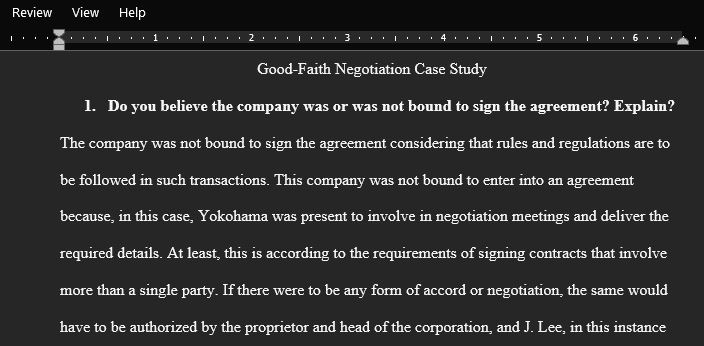The union filed an unfair labor practice for refusing to sign the negotiated agreement and for not notifying the union
The union filed an unfair labor practice for refusing to sign the negotiated agreement and for not notifying the union that the wage increase was being rescinded. The Union pointed out that the duty to bargain carries an obligation to appoint a negotiator with genuine authority to carry on meaningful bargaining on key issues and while an employer is not required to appoint an individual possessing final authority to enter into an agreement, the law is clear that an agent assigned to negotiate a collective bargaining agreement is clothed with apparent authority to bind the principal unless notice is given to the contrary. Therefore, if the agent does not have authority to bind his principal, notice of that must be clearly and unambiguously given. If an employer’s agent does not clearly communicate the existing condition precedent of his principal’s approval of any agreement, the refusal to sign the agreement is unlawful. The Union testified that Yokoyama and Jarvis repeatedly said they could negotiate on behalf of the Company. There was no “clear or unambiguous” notice that the agreement reached at the bargaining table would have to be approved by J. Lee. Therefore, refusing to sign the was an unfair labor practice.
- Do you believe the company was or was not bound to sign the agreement? Explain.
- Explain why it might be an unfair labor practice for the company to rescind the pay raise
- It is not an unfair labor practice for an employer to send negotiators to the bargaining table without the authority to give final approval to the negotiated
Answer preview for The union filed an unfair labor practice for refusing to sign the negotiated agreement and for not notifying the union
Access the full answer containing 1462 words by clicking the below purchase button.

